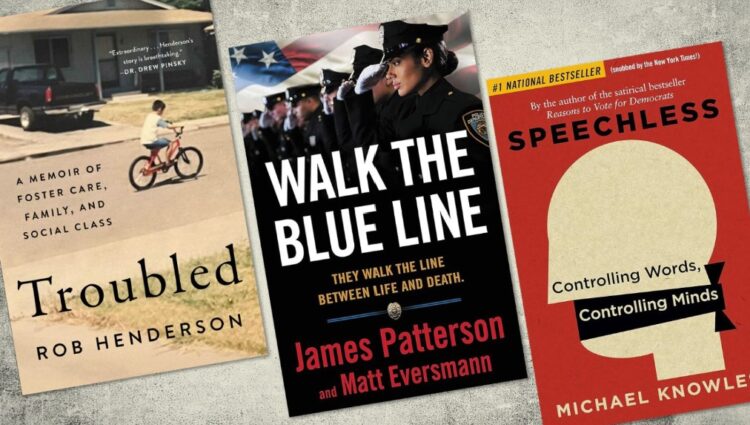An investigation by The Economist has revealed The New York Times’ s (NYT’s) prestigious list of bestselling books may be systematically biased against conservative publishers, with their books between 7 and 22 per cent less likely to make it onto the list than publications from publishers with left-wing authors in their stable (Mediaite, New York Post, Times).
The NYT has been compiling the list since 1931 and on its website describes it as an “up-to-date and authoritative list of the most popular books in the US, based on sales in the past week”. While the Gray Lady keeps a tight lid on its process for selecting bestsellers, it is known that it samples its own list of certain booksellers across the country – though which ones is a tightly guarded secret – then it looks at the data.
This isn’t the first time the NYT’s bestseller list has attracted controversy. In March, Elon Musk called the list “pure propaganda”, pointing to its decision not to feature Troubled, a book about the hypocrisy of America’s elite written by conservative Rob Henderson, on its hardback non-fiction list, despite it outperforming the fourth and fifth titles on sales.
However, the study by The Economist is the first methodical, data-driven look at the issue, and reveals a definite preference for left-wing writers.
However, the study by The Economist is the first methodical, data-driven look at the issue, and reveals a definite preference for left-wing writers.
The Economist compiled 12 years’ worth of figures from Publishers Weekly and identified books by 12 publishers that describe themselves as politically to the right of centre. These include Broadside Books, an imprint of HarperCollins that specialises in “conservative non-fiction”, and Regnery Publishing, which bills itself as America’s “leading publisher of conservative books”.
Bookshops have been told by Scotland’s most powerful literary alliance not to sell books written by gender-critical writers or to give the authors public platforms.https://t.co/nZUoGzKCOs
— The Free Speech Union (@SpeechUnion) May 26, 2024
While leading conservatives such as Bill O’Reilly and Glenn Beck are frequently listed on the NYT’s bestseller non-fiction list, The Economist found that less prominent authors have a more difficult time making the cut.
The study found that on average conservative publishers were 7 per cent less likely to make it on to the weekly bestseller lists than books by other publishers with similar sales figures.
Those books that make the bottom 10 of the top 25 slots on Publishers Weekly’s bestselling non-fiction list in any given week are 22% less likely to be listed in a similar slot on the Times’ bestseller list, The Economist found.
Also revealed was the fact conservative authors who do manage to get their work touted on the NYT’s bestseller list for non-fiction end up ranking on average 2.3 notches below other authors with similar sales figures.
"Public libraries are disproportionately displaying books favourable to trans-activist opinions, with some offering no gender-critical alternative."
— The Free Speech Union (@SpeechUnion) October 31, 2023
It's great to see the findings from our latest research briefing, Not On Our Shelves: Soft Censorship in Local Authority… pic.twitter.com/tGHHP67244
Among the examples cited is the 2021 book Speechless: Controlling Words, Controlling Minds, by Michael Knowles, a conservative political commentator. In its first week, it sold 17,587 copies and ranked first on Publishers Weekly’s list, while continuing to perform well the following week. Nonetheless, it failed to crack the NYT’s bestseller list. “The New York Times has a view of an acceptable kind of conservative,” Knowles told The Economist.
Rob Henderson’s book Troubled, which details the hypocrisy of America’s elite, was omitted from the NYT’s bestseller list despite the fact that its sales outperformed those that were ranked as high as fourth and fifth that week, according to Circana Bookscan, which tracks 85% of print book sales in the US.
Ari Fleischer, who was White House press secretary during the George W. Bush administration, is author of the 2022 book Suppression, Deception, Snobbery and Bias. The book reached as high as number six on Publishers Weekly’s list of bestselling non-fiction works in the summer of 2022. But the book was nowhere to be found on the NYT’s list.
Other books that sold well but which were conspicuously absent from the NYT’s bestseller list include A Time for Truth: Reigniting the Promise of America by Republican Senator Ted Cruz, and American Playbook: A Guide to Winning Back the Country from the Democrats, by commentator Clay Travis.
While the NYT insisted in a statement that “the political views of authors or their publishers have absolutely no bearing on our rankings and are not a factor in how books are ranked on the lists,” The Economist expressed doubt in this sentiment by running through and debunking several alternative explanations – including bulk sales, and a bias against political sales more generally – for the discrepancy it found.
Reflecting on the implications of its findings, The Economist argued that “The fairness of the NYT list is not merely a question of politics,” before concluding:
“Bestseller status helps an author sell more books, generate speaking fees and negotiate better contracts for future book deals. As other newspapers have done away with their lists and bookstores have closed in recent decades, the New York Times list is even more important. It is supposed to function as a reflection of what the public is reading—and influences what consumers might want to.
“A more transparent list would also be more useful. If Alex Jones, a controversial far-right conspiracy theorist, was indeed the second-place bestselling author in America—as Bookscan says he was in August 2022, with a title that was omitted from the New York Times list—people should probably know that. His enduring popularity says a lot about the country and its readers, who are not willing to close the book on him.”






